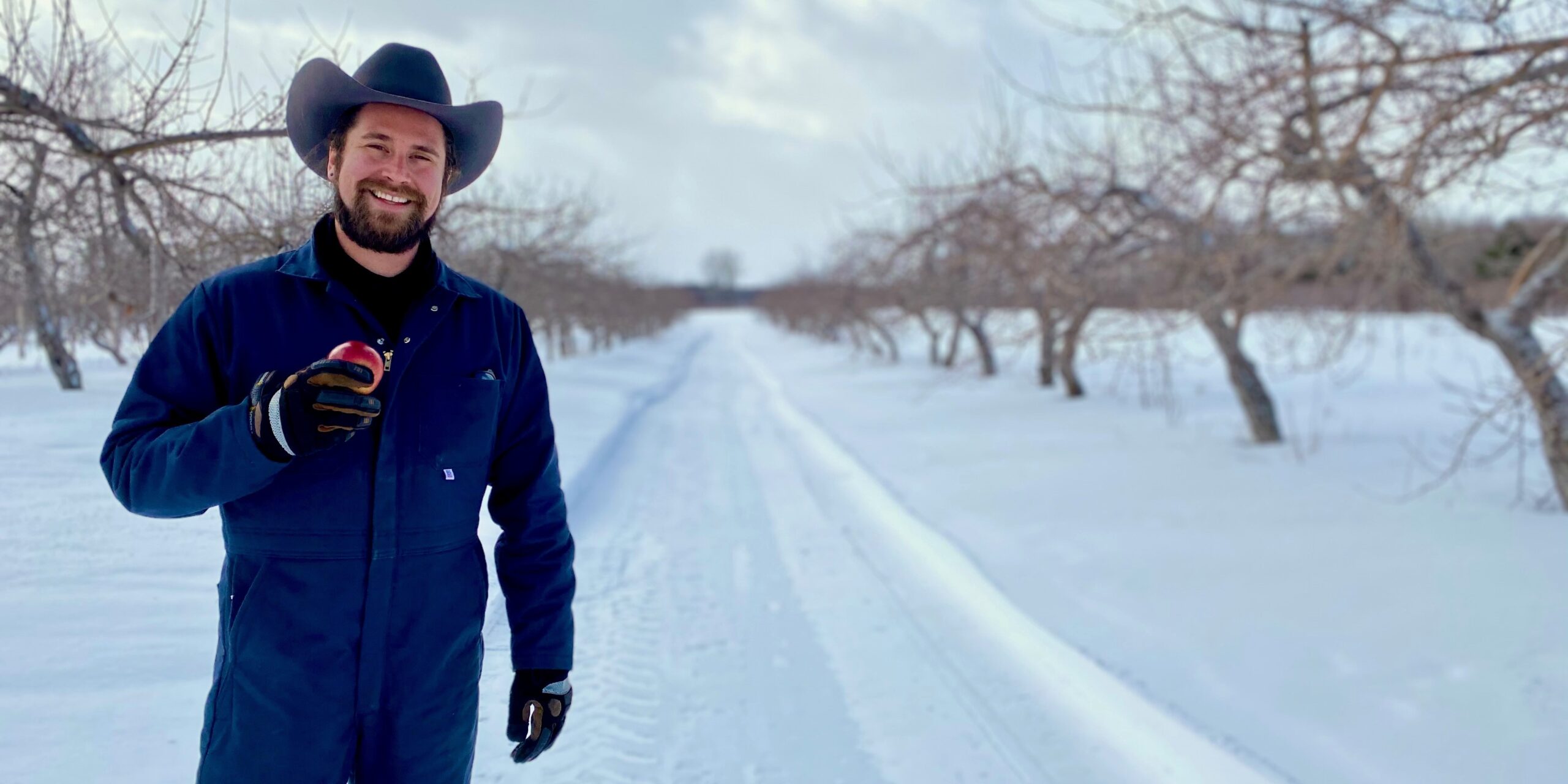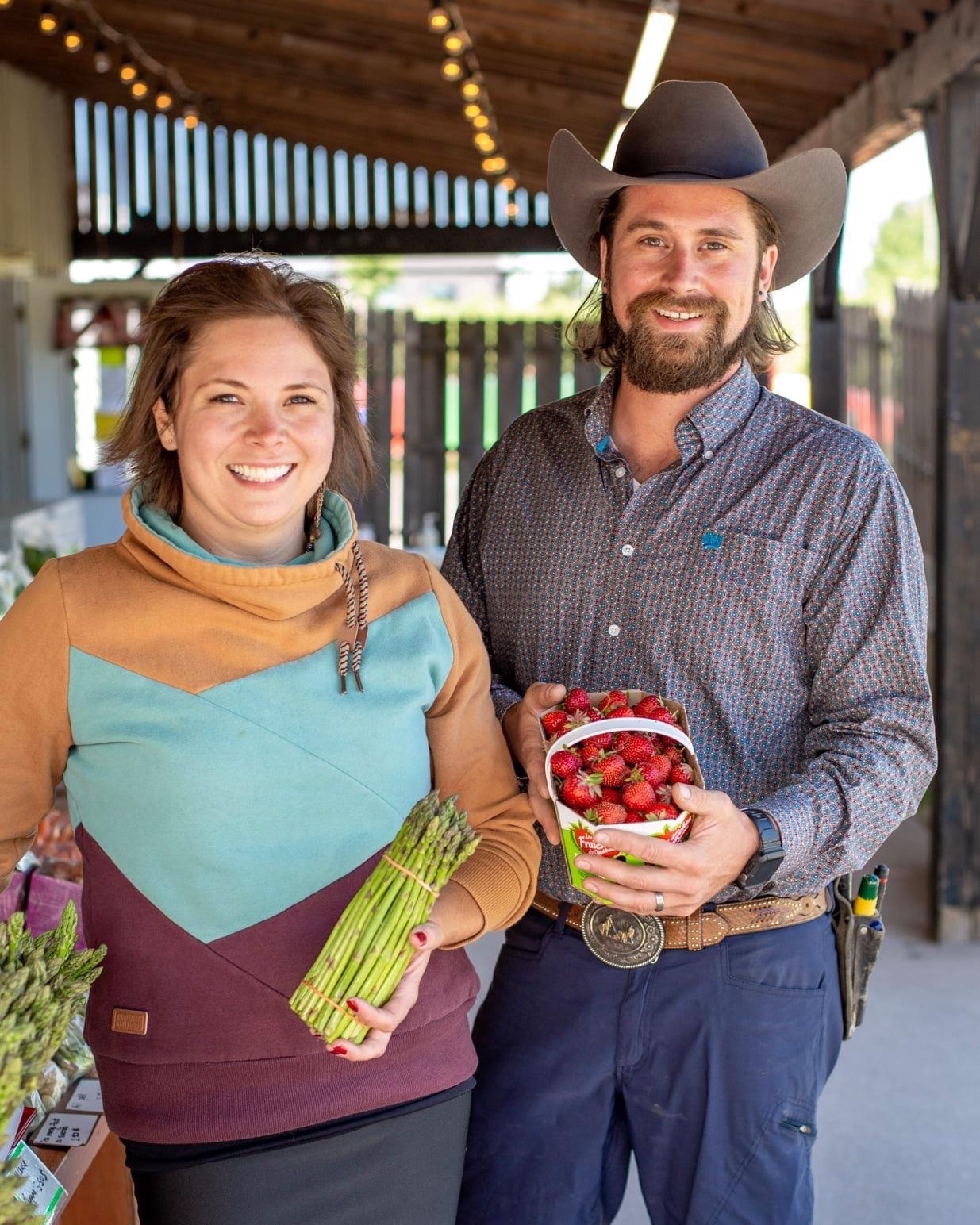
Raised in a Montérégie farming family that has been growing fruit and vegetables for three generations, Philippe Beauregard was the first to attend university, completing a bachelor’s degree in Agricultural Economics at McGill in 2015. Today, the curious and ambitious entrepreneur owns Potager Mont-Rouge Halte Gourmande, a successful agrotourism business in Rougemont, Montérégie.
An education built on curiosity and openness
After CEGEP studies in agricultural engineering, Beauregard decided to pursue a diploma in Rural Engineering at CEGEP de Saint-Hyacinthe. Because his goal was to study agro-economics at university, he included the science courses he would need as prerequisites.
When it came to deciding on a university, Beauregard saw McGill as the obvious choice, even if some people might have found that surprising. “I wanted to study in English because I wanted to learn the language. It was a challenge I really was up for, and I knew it would open new doors for me,” he explains.
McGill offers several advantages: students can write their assignments and exams in either English or French; Quebec students benefit from tuition fees similar to those at other Quebec universities; and students can improve their English without leaving Quebec.
Studying at McGill: small challenges, big opportunities
Beginning his studies before he fully mastered English was a challenge.
“I realized during my first semester that working on the farm and studying in a language I wasn’t fluent in was a lot,” says Beauregard . “I reduced my course load and completed my degree in four years instead of three. This allowed me to make friends, get involved in sports, and build a new network. I also worked as a Floor Fellow in my residence, so I became a resource for other students,” he adds.
Formative work experiences help launch a career
Beauregard gained additional experience from an internship in agricultural financing with FCC (Farm Credit Canada) in Saint-Hyacinthe during his fourth year at McGill, deepening his knowledge of management and economics. He then landed a job in Kelowna, British Columbia – a six-month replacement position working again with FCC, but this time in vineyard financing – an experience he describes as unforgettable.
“I leapt into this job, which was totally in English, with self-confidence and enormous enthusiasm,” Beauregard says. “I wanted to see more of the country and to have a sense of freedom, while at the same time developing financial skills – ones I continue to use in my work to this day.”
Making dreams come true: Potager Mont-Rouge Halte Gourmande
Back on the family farm, the young graduate noticed a piece of land for sale in his village; a pick-your-own apple orchard.
“At that moment, my sister and I had a vision. We said to ourselves, ‘this is what we want, the land is perfect, this is where we want to launch our agrotourism project’,” he explains. “My family had a vegetable farm, and we sold our harvests at farmers’ markets. We wanted to transform our business model and go the pick-your-own route, so people would come to us instead.”
An innovative and complementary agrotourism model
And so, Beauregard and his sister bought the 75 acres of land and created Le Potager Mont-Rouge Halte Gourmande.
“It worked out really well; we left the 25 acres for apple picking intact and transformed the other 50 acres previously used for grain into plots for strawberries, asparagus, pumpkins, eggplant, basil, sweet potatoes, okra, etc.” says Beauregard. “We’ve created small, varied plots with exclusive produce available to pick yourself.”
The business quickly saw exceptional growth and impressive sales figures. Last year, in addition to welcoming an ever-growing clientele, the site also hosted 3,000 children who visited on school outings.
An outward-looking education, rooted in Quebec

When asked what impact attending McGill had on his career trajectory, the entrepreneur doesn’t hesitate.
“My studies at McGill allowed me to realize my ambitions. I was able to overcome language barriers that affected my family’s business,” says Beauregard. “For me, English is an additional tool, not a source of division and debate. McGill helped me connect with a wider community than the one I come from, and this is reflected at Le Potager, which is truly open to the world. My university experience also gave me the tools I needed to make my business what it is today: I developed a network there, as well as credibility and a vision. Being the go-getter that I am, my academic experience was truly a springboard.”
“Our work goes beyond traditional farming – you have to have an open mind, know how to reflect, and optimize your resources,” says Beauregard. “My studies at McGill have allowed me to do that.”
Beyond his passion for the land, Beauregard sees agriculture as a way to connect with others. “I’m in this business for the human contact; my work allows me to build connections with people, that’s where all the fun lies. It’s an intense way of life, but I wouldn’t change a thing. The farm is a huge playground for me.”
And what about the encounters that marked his journey at McGill? “At the end of my studies, I attended a masked ball, and that’s where I met my wife, with whom I now have three children. That’s another thing I owe to McGill!”

This is a cute article. I went to the farm many times with my family. Saw the owners wear McGill hoodies quite often and was wondering if there’s a McGill connection. Now I know 😉
This is an e celle t article and should be made available please in French and in English and widely distributed to McGill’s network and brought to the attention of those who may not know of fellow Québécois who have attended McGill and would benefit from knowing why.Philippe Beauregard chose McGill. A great personal story. There are no doubt so many other such experiences that McGill needs to portray to a much wider and diverse audience in Québec.
So sincere and down-to-earth, this young man was, and he wanted the best. That was where McGill University came in. Congratulations Philippe Beauregard, you deserved the best.